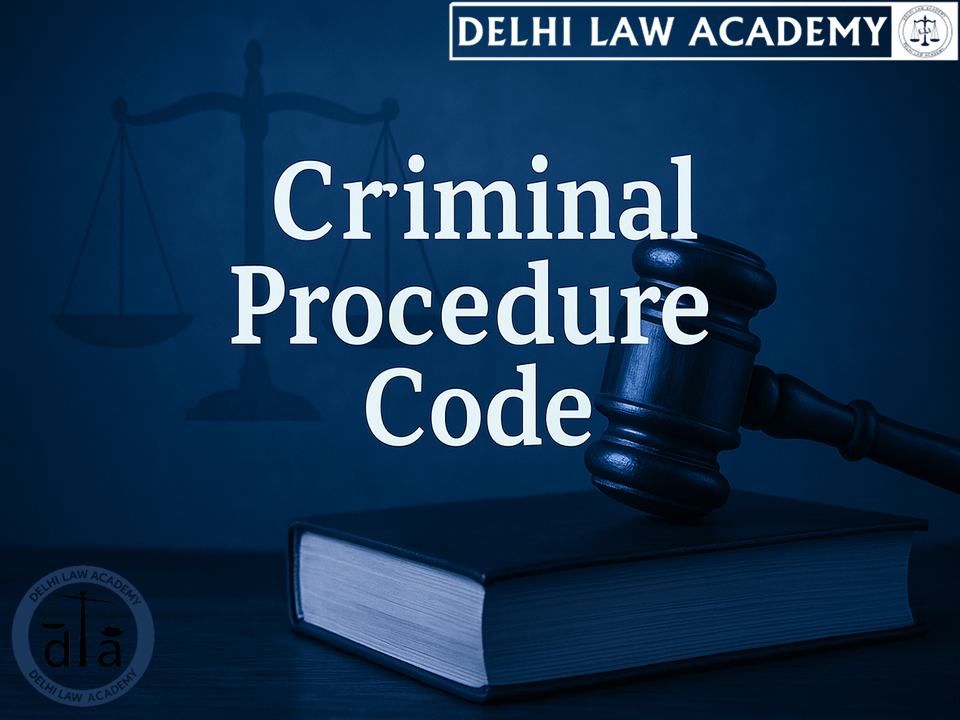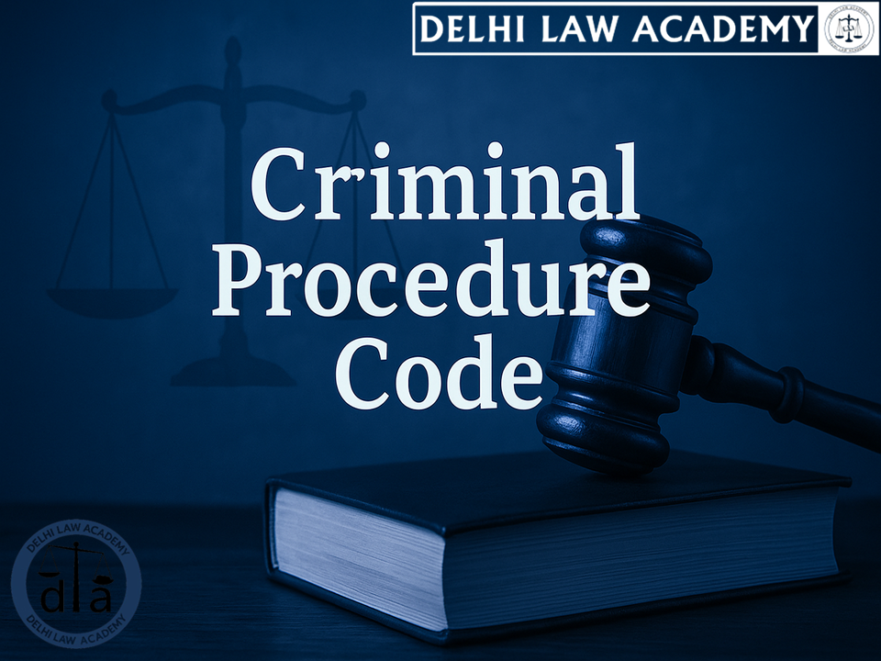
⚖️ CrPC Test 3 [Fully Solved] | Judicial Services Preparation
RJS, DJS, PCS(J) & Other Judicial Exams
The Criminal Procedure Code forms the bedrock of civil law. Its thorough knowledge is a must for all aspirants of RJS, DJS, PCS(J) or any other Judicial Service exam for that matter.
To help such aspirants, Delhi Law Academy Jaipur has launched a series of fully solved tests on all important aspects of this vital part of their syllabus:
📝 CrPC Test 3 [Fully Solved]
Q 31: In which court can an accused apply for a plea bargain?
Ans:
Section 265B
• A person accused of an offence may file an application for plea bargaining in the Court in which such offence is pending for trial.
Q 32: who can grant bail for a non-bailable offence, the police officer or the court?
Ans:
Section 437
• When any person accused of, or suspected of, the commission of any non-bailable offence is arrested or detained without warrant by an officer in charge of a police station or appears or is brought before a Court other than the High Court or Court of session, he may be released on bail.
Q 33: In a situation where a person competent to compound an offence is dead, who is entitled to compound?
Ans:
Section 320(4)(b)
• When the person who would otherwise be competent to compound an offence is dead, the legal representative of such person may, with consent of Court, compound such offence.
Q 34: How can cognizance of an offence of defamation under Chapter XXI of the Indian Penal Code be taken?
Ans:
Section 199
• No Court shall take cognizance of an offence punishable under Chapter XXI except upon a complaint made by some person aggrieved by the offence:
• when any offence falling under Chapter XXI is alleged to have been committed against a person who is the President of India…. or any other public servant a Court of Session may take cognizance of such offence, without the case being committed to it, upon a complaint in writing made by the Public Prosecutor.
Q 35: Under which section of the Criminal Procedure Code, examination of a witness can be done in the absence of an absconding accused?
Ans:
Section 299
• If it is proved that an accused person has absconded and that there is no immediate prospect of arresting him, the Court competent to try or commit for trial may, in his absence, examine the witnesses produced on behalf of the prosecution and record their depositions.
Q 36: Which section of CrPC tells us which offences are compoundable?
Ans:
Section 320
• The offences punishable under the sections of the Indian Penal Code specified in the first two columns of the Table next following may be compounded by the persons mentioned in the third column…
Q 37: How do we know whether a given offence is cognizable or non-cognizable?
Ans:
From The First Schedule : Classification of Offences….
Q 38: Which authority is empowered to withdraw prosecution of any person at any time before judgement is pronounced?
Ans:
Section 321
• The Public Prosecutor or Assistant Public Prosecutor in charge of a case may, with the consent of the Court, at any time before the judgment is pronounced, withdraw from the prosecution of any person.
Q 39: Which section of Cr. P.C. provides for free legal aid to an accused?
Ans:
Section 304
Q 40: Will a wife be entitled to maintenance if she is living separately by mutual consent?
Ans:
Section 125(4)
• No wife shall be entitled to receive an allowance for maintenance or interim maintenance and expenses of proceeding from her husband if she is living in adultery or if, without any sufficient reason, she refuses to live with her husband or if they are living separately by mutual consent.
📚 Continue Your CrPC Preparation
Don’t stop here! Strengthen your knowledge of the Criminal Procedure Code with our other fully solved tests:
📘 Free Study Material for Judiciary Aspirants!
Download our FREE study material prepared by Delhi Law Academy’s expert faculty.
Contact us
📍 Delhi Law Academy – Jaipur Branch
6C, Tower 2, Coaching Hub, Pratap Nagar, Jaipur – 302033
📞 Phone:
+91 9911916552
+91 8447285606
✉️ Email:
contactus@delhilawacademy.com

